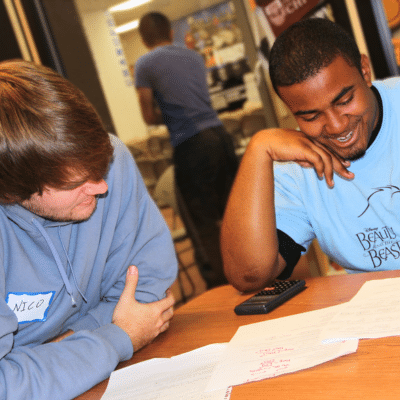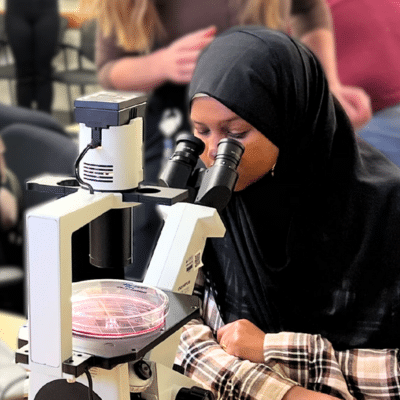Adjusting to college life is a challenge for most students. The shift from the structured environment of high school to the more independent atmosphere of college tends to throw people for a loop. There are new academic demands, social adjustments, and a cultural adaptation process that requires time and effort. Navigating this transition can feel overwhelming – especially for first-generation college students.
First-gen college students face unique challenges as they navigate unfamiliar territory without the benefit of parents who have gone through the college experience before them. All of the usual challenges of collegiate life can feel compounded for first-generation college students, who lack the familial guidance and support that many others take for granted. Thankfully, there are some ways you can help the college student in your life.
1. Financial Assistance
- Financial assistance is crucial for first-gen college students, who often face financial hurdles due to limited family resources. To help, many organizations offer scholarships, help cover textbook expenses, or assist with living costs. Such aid alleviates financial strain, allowing students to focus on their studies.
It’s hard to know what you don’t know. Many youth aren’t even aware that scholarships for first-gen college students are available to them. If you’re serious about helping the first-gen college student in your life, spread awareness about financial aid resources and scholarships. Many organizations and institutions provide tailored support programs. By sharing this information, individuals empower first-gen students to access necessary financial aid.
2. Mentorship and Guidance
- First-gen college student struggles are inevitable. So long as students have guidance from trusted mentors, though, they can tackle hurdles as they arise. Mentorship and guidance are vital for first-generation college students, offering support in navigating the complexities of higher education. Peer mentoring programs, faculty mentorship initiatives, and alumni networks serve as valuable resources.
If you have a first-gen college student in your life who is struggling to adjust, you may want to encourage them to look into peer mentoring. These programs pair first-gen students with older peers who can offer insights and support, fostering a sense of belonging. Faculty mentorship initiatives are also helpful; they provide personalized guidance and academic support, helping students navigate coursework and explore career paths. Alumni networks connect students with successful graduates, offering mentorship and networking opportunities.
For mentors, effective support involves listening, encouragement, and advocacy for resources. Understanding the unique challenges faced by first-gen students is key, as is providing tailored guidance to meet their needs. By building trust and empowering students, mentors play an important role in their academic and personal success.
3. Academic and Support Services
- Academic support services are essential for first-generation college students to succeed academically. These services, like tutoring programs, academic advising, and study skills workshops, offer valuable assistance in navigating the challenges of higher education. Grants for first-gen college students often back these services.
To encourage first-gen students to use support services, raise awareness about their availability and benefits. Students can attend orientation sessions or schedule an initial meeting with support-service staff. These visits often showcase a safe and supportive environment where students feel comfortable discussing and seeking help for financial barriers via scholarships or fee waivers.

4. Cultural and Community Support
- Finding your group of friends in college can be a real challenge. Connecting with others is one of the most important parts of the collegiate experience – it’s vital for the well-being and success of first-generation college students. Affinity groups, cultural centers, and campus events provide important avenues for connection and belonging.
Affinity groups offer spaces where first-gen students can find solidarity and understanding among peers who share similar backgrounds and challenges. Cultural centers serve as hubs for celebrating diversity and providing resources that honor students’ cultural identities.
Campus events, such as cultural celebrations and workshops, provide opportunities for students to engage with diverse perspectives and experiences, fostering dialogue and understanding. No matter how the first-gen college student in your life chooses to get involved on campus, encourage them to keep an open mind to try new things.
5. Professional Development Opportunities
- Most students attend college with the goal of graduating with a good job. Internships, networking events, and career counseling services play crucial roles in helping students achieve their career goals. While first-gen college student scholarships can help fund their education, it is the connections they make on campus that can help pave the way for their future careers.
If the college student in your life is feeling confused about how to make the most of professional development opportunities on campus, encourage them to take advantage of the resources available. Suggest that they start by exploring internship opportunities and job fairs hosted by the college’s career services department. These events offer valuable opportunities to network with employers and learn about internships and job openings in their field of interest.
You may also want to encourage them to join student organizations related to their field of study, as these groups often host events, workshops, and networking opportunities that can enhance their professional skills and expand their network of contacts.
6. Advocacy and Policy Initiatives
- Beyond supporting the first-gen college student in your life, consider advocating for policies and initiatives that support first-generation college students on a larger scale. This can involve supporting legislation that increases access to higher education, improves financial aid programs, and promotes equity and inclusivity on college campuses.
You can also get involved in advocacy efforts at the local, state, or national level by joining organizations or coalitions that work to address issues facing first-gen students. These groups often advocate for policies that support college access and success, such as increasing funding for first gen-college student scholarships, expanding support services for first-gen students, and promoting diversity and inclusion in higher education.
By advocating for policies and initiatives that support first-gen college students, you can help create a more equitable and inclusive educational system that ensures all students have the opportunity to succeed.
Get Involved with Reality Changers
If you’re hoping to promote diversity and equal access to higher education, supporting first-generation college students is a must. You can positively impact the lives of first-generation students by encouraging them to use the resources available to them and being ready to listen when they need guidance.
Consider getting involved with organizations like Reality Changers, which provides support and resources to first-gen students. Whether through volunteering, fundraising, or spreading awareness about our mission, your support can make a difference in the lives of first-gen college students and contribute to building a more inclusive and equitable society.



